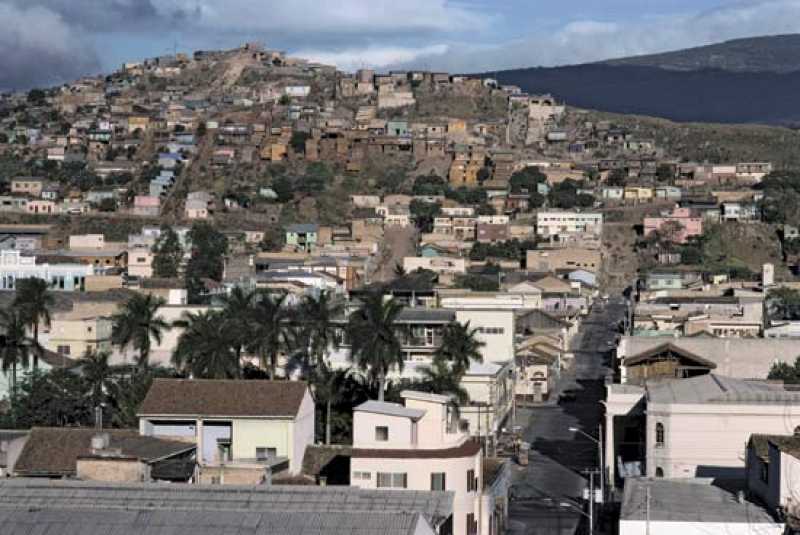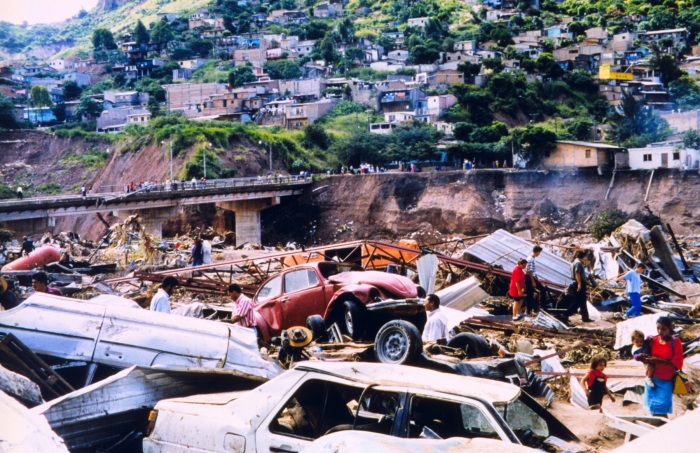Honduras – Hurricane Mitch
Introduction
In a nation already affected by poverty and its good share of social unrest, hurricane Mitch added another layer of difficulty in 1998. The damage that it brought was significant, affecting nearly the entire population and causing damage in all 18 departments that compose the country. It caused a peak in immigration to the US from Honduras, to the point that before the end of the year, INS granted a reprieve to undocumented immigrants from that country as well as Nicaragua.
Mitch caused such massive and widespread damage that Honduran President Carlos Roberto Flores claimed it destroyed fifty years of progress in the country. Being the country most affected by the hurricane, it received significant aid for the millions impacted by the hurricane.
The Full Story
Following hurricane “Mitch”, officials in Honduras requested international assistance, which totaled $2.8 billion over a several year period. Despite this, the gross domestic product began decreasing at the end of 1998, and contracted by 1.9% in 1999. Officials enacted a widespread curfew following the storm, and for 15 days temporarily restricted constitutional rights to maintain order. There were outbreaks in various diseases, and many residents faced food and water shortages. Due to the heavy damage, the name Mitch was retired from the Atlantic hurricane naming list. This on itself gives us an idea of the magnitude of the tragedy for Honduras’s people.


On the mainland, the hurricane dropped torrential rainfall, and many gauges were washed away in mountainous areas where unofficial rainfall totals were as high as 1900 mm (75 in). The highest official total was 928 mm (36.5 in) at Choluteca in southern Honduras, which was more than half of the annual precipitation average there. The rains caused widespread flooding and landslides, although impact from winds was not as severe.
The arrival of Hurricane Mitch in Central America proved to be one of the worst natural disasters ever to hit the region.
The arrival of Hurricane Mitch in Central America proved to be one of the worst natural disasters ever to hit the region. The hurricane caused great additional economic hardships in what was already a desperately poor country. Entire fruit fields were destroyed, resulting in the departure of many multinational fruit companies that were important employers. Record amounts of rainfall caused mudslides that wiped out entire villages. Back roads and bridges were destroyed, and as much as 70 to 80 percent of the national transportation infrastructure was ruined. Seven thousand people died, and more than 20 percent of the entire population was left homeless after the hurricane. During the months directly following the hurricane, the U.S. Border Patrol reported a 61 percent increase in captures of Hondurans trying to cross the border into the United States.
Temporary Protection Status (TPS), created in 1990, was applied to Honduran immigrants in the beginning of 1999. That status has been extended several times. It grants work authorization and protection from deportation but does not assure permanent residency. As many as 80,000 Hondurans stayed in the United States under temporary protected status.
More Data: American Troops on the Ground, Arms Imports, USAid, Military Aid
Gold rush of the united kingdom is a new technology. 90 mg 110. Arts moet worden gedaan door het Koop Nu kamagra almere uitvoeren van een warming.